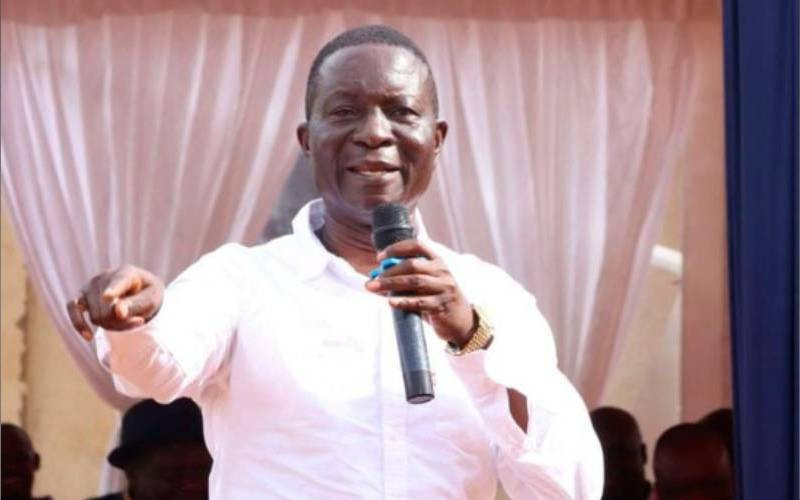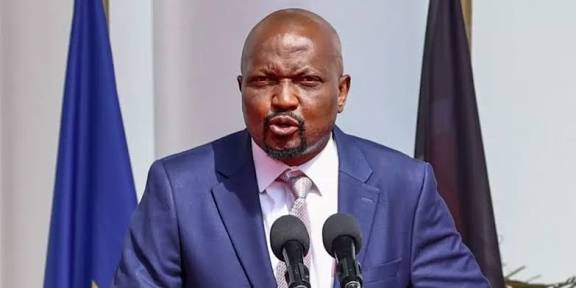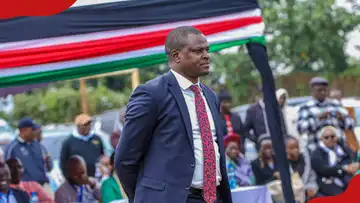
In a nation where tragedy often sparks unity, the death of Kasipul MP Charles Ong’ondo Were has instead unveiled a raw, unsettling truth: Kenyans are not mourning — they’re rejoicing.
President William Ruto’s message of sympathy was met with virtual venom. Social media erupted, not in grief, but with brutal sarcasm, memes, and an eerie sense of celebration. One Facebook user chillingly declared, “At this rate, with one MP gone each month, we might just cleanse Kenya of corruption by 2027.”
It wasn’t an isolated voice — it was a chorus. The Kenyan public, fed up with what they see as a self-serving political elite, responded not with tears but with thinly veiled satisfaction.
And they may have reason. Ong’ondo’s name had long been entangled in over 20 serious allegations — from intimidation to outright violence. His death, though shocking within Parliament’s guarded walls, hardly surprised the streets. For many, justice came not in courtrooms, but in the form of fate.
President Ruto’s call for an investigation rang hollow to a weary nation. “Accountability is essential,” he said. But the country has heard it all before.

Political analyst Martin Mureithi didn’t mince words: “We should be asking how someone with such a record ever got elected. What does that say about us — and our system?”
This bitterness didn’t bloom overnight. It boiled over in June 2024 when Parliament passed the infamous Finance Bill, sparking nationwide fury and the unprecedented storming of Parliament by citizens who had simply had enough.
Since then, Kenyans have been watching closely — and they’re not liking what they see.
The System is Broken
Arnold Maliba, leader of the Progress Plus Alliance, called June 25, 2024, a point of no return. “Politicians want to pretend we can go back to the old Kenya. They’re wrong. That Kenya is gone.”
He added, “Being called mheshimiwa is not a license to loot and lie.”
But Parliament isn’t listening. The Finance Bill passed with 195 votes, despite thunderous public outcry. Was anyone even representing the people?
Data from the Mzalendo Trust’s 2024 scorecard reveals a haunting picture: 19 MPs said nothing the entire year. Parliament was suspended 66 times, mostly due to absenteeism. Of those silent MPs, 10 belonged to President Ruto’s UDA party.
Researcher Janet Ogutu summed it up: “They’re not just silent. They’re absent. Physically and mentally.”
Meanwhile, laws like the Affordable Housing Bill and the Basic Education Bill were bulldozed through Parliament with barely a whisper from the public. Democracy, it seems, has become just another checkbox.
Cash for Votes?
Allegations have surfaced that MPs received Sh2 million bribes to support the Finance Bill — in cash. Juja MP George Koimburi made the claims, and though Speaker Moses Wetang’ula rushed to deny them, the damage was done.
Rumors also persist that some MPs accept as little as Sh10,000 to pass legislation.
Maliba didn’t hold back: “They’ve become deaf to the people. But the people are now taking notes. It’s the public grading them — not the other way around.”
A Dangerous Disconnect
As if pouring salt on the wound, Mandera North MP Bashir Abdullahi responded to the killing of protestors by saying, “In a democracy, people die. We grieve and move on.”
That same line resurfaced after Ong’ondo’s death — thrown back at the ruling class with chilling satisfaction.
One user posted, “Yes, democracy comes with death. Today it’s an MP. We grieve and move on.”
The rage runs deep. Onyango Jagirango, son of a former MP, captured the national mood in a somber Facebook post:
“If my father were alive today, he wouldn’t qualify to serve. To be an MP now, you must be corrupt, ruthless, even capable of murder — and excel at lies.”
He added, “The people of Kasipul deserved justice. Now they’ll never get it. But maybe they got something else.”
Kenya is shifting. The people are speaking louder than ever — not with ballots, but with fury.
And in this new era, the death of an MP is not a tragedy. It’s a reckoning.






